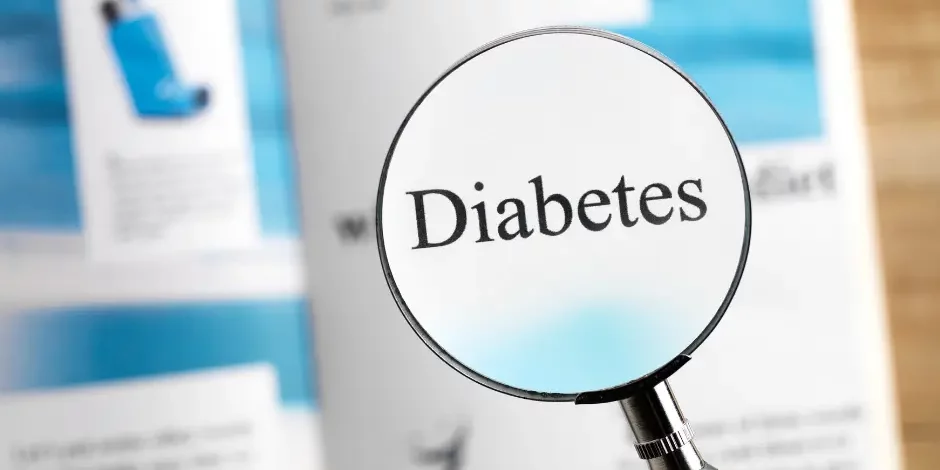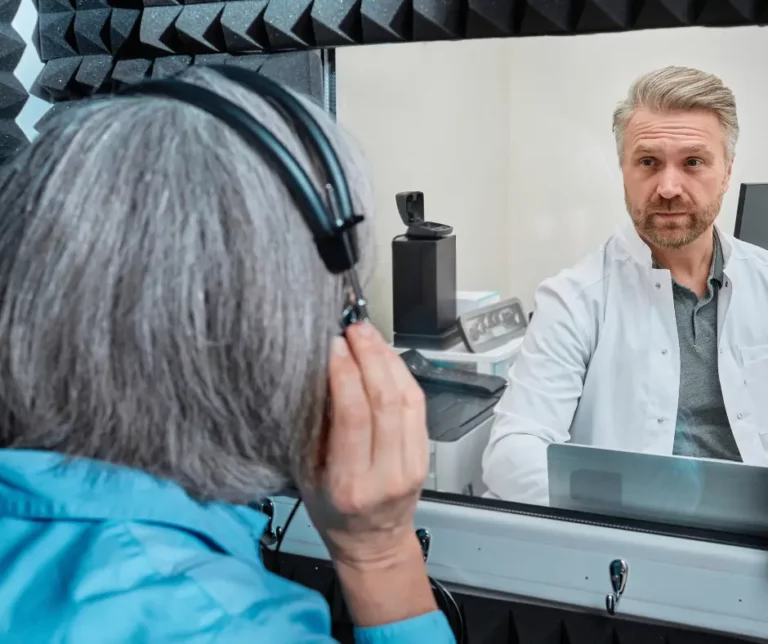Hearing Loss: An Overlooked Complication of Diabetes

A variety of factors can lead to hearing loss, with aging and exposure to loud noises frequently blamed. However, the subtle yet significant link between diabetes and hearing loss is often missed. Diabetes management, especially keeping blood sugar levels in check, can be vital for overall well-being and maintaining good hearing health. Research reveals that people with diabetes are at a doubled risk of hearing-related issues. Hence, recognizing early signs and adopting preventive measures becomes paramount. Join Stanford Hearing as we delve into the intricate relationship between diabetes and auditory health, underscoring the need for increased vigilance for those grappling with both conditions.
Comprehending Diabetes and Its Effect on Hearing
All About Hearing Loss
Hearing loss creeps in insidiously, often with friends or relatives detecting its initial signs before the affected individual. Some unmistakable signs include:
- Consistently asking for repetition during conversations.
- Difficulty in comprehending group discussions.
- Feeling that others need to speak more clearly.
- Need help understanding conversations in noisy environments.
- Straining to hear whispers or the voices of young children.
- Increasing device volumes to uncomfortably loud levels for others.
- Inner ear disturbances cause balance issues.
Discover more about hearing loss types.
All About Diabetes
On the flip side, diabetes, a chronic medical condition, influences how the body converts food into energy. It manifests in several types:
- Type 1 Diabetes: Stemming from an autoimmune reaction, it curtails insulin production. This type accounts for 5-10% of diabetic cases and can strike at any age. Daily insulin administration becomes a necessity for these individuals.
- Type 2 Diabetes: This type impacts 90-95% of people with diabetes. It arises when the body fails to utilize insulin efficiently, culminating in elevated blood sugar levels. Though predominantly diagnosed in adults, its prevalence in younger individuals is on the rise. Routine blood sugar checks are essential, especially for high-risk groups. Lifestyle changes, including weight management, a balanced diet, and consistent physical activity, can help prevent or delay its onset.
- Gestational Diabetes: Exclusive to expectant mothers without a prior diabetes diagnosis, it generally resolves post-delivery. However, it magnifies the risk of future type 2 diabetes for both the mother and the offspring.
- Prediabetes: Alarmingly prevalent, it affects nearly 1 in 3 U.S adults. In this state, blood sugar levels hover higher than average but aren’t high enough for a type 2 diabetes diagnosis. With lifestyle modifications, it’s feasible to reverse prediabetes.
Unraveling the complexities of both hearing loss and diabetes offers insights into their potential intersection, leading to a deeper exploration of the scientific nexus between these two conditions.

Deciphering the Diabetes-Hearing Connection with Science
The ramifications of persistent elevated blood sugar are extensive, impacting everything from extremities like hands and feet to crucial organs such as eyes and kidneys. The auditory system, especially the ears, is no exception. The correlation between diabetes and hearing impairment isn’t just speculative. A seminal study by Bainbridge, Hoffman, & Cowie in 2008 and other corroborative studies have cemented this connection. A meta-analysis, synthesizing results from 13 distinct studies involving over 20,000 participants, found that people with diabetes consistently showed heightened hearing loss rates, irrespective of age. Why?
- Inner Ear Vulnerability: The ear, with its intricate network of minute blood vessels and nerves, is susceptible to the perils of high blood sugar. Persistent high levels can compromise these structures, while sustained low levels can hamper the nerve signals relayed from the inner ear to the brain, enhancing the hearing loss risk.
- Significance of Blood Sugar Control: Alarmingly, people with diabetes exhibit double the risk of hearing impairment. Those with prediabetes display a 30% increased risk. This startling data points towards blood sugar levels possibly being a key factor causing damage to blood vessels and intricate inner ear structures.
- Balance and Equilibrium: Beyond just hearing capabilities, diabetes can compromise balance. Damage to the ear’s minute blood vessels affects the balance-maintaining component’s vestibular system, leading to dizziness and increased fall incidents.
- Tinnitus and Diabetes: Tinnitus, characterized by ringing in the ears, is more prevalent among people with diabetes. While it’s often associated with undiagnosed hearing loss, it can be an independent symptom in people with diabetes. Certain medications for diabetes might heighten this risk.
Proactive Steps
For those with diabetes, it’s vital to understand that timely detection and preventive action are keys to safeguarding auditory health.
- Routine Screenings: Annual hearing check-ups should be integral to a diabetic’s health regimen, parallel to eye check-ups.
- EAR Approach: Stand by the EAR strategy – Evaluation, Awareness, and Risk reduction. Regular professional screenings set a benchmark. Self-assessment tools further facilitate personal monitoring. Staying informed and maintaining optimal blood sugar levels can keep complications at bay. Formal training sessions can be invaluable in learning strategies to manage diabetes and its potential auditory implications.
Prevention Guidelines:
The essence of hearing protection lies in the following:
- Blood sugar maintenance within the desired range.
- Yearly hearing evaluations.
- Avoiding loud noises.
- Discussing the potential side effects of medications with healthcare professionals.
Hearing loss can cast shadows on both personal and social interactions. Protecting one’s auditory health transcends physical well-being, enhancing the overall quality of life. Hearing evaluations into a comprehensive diabetes care plan offer a holistic strategy against potential complications.
Understand more about protecting your hearing.

Taking the Next Steps with Stanford Hearing
In summation, the deep-rooted connection between diabetes and auditory health necessitates a proactive and informed approach. The team at Stanford Hearing emphasizes the value of consistent check-ups and preventive steps for people with diabetes to ensure impeccable auditory health. Why wait for symptoms to emerge? Embrace preventive care. We invite you to Stanford Hearing for a comprehensive hearing screening. Let’s join hands in preserving your auditory health!
